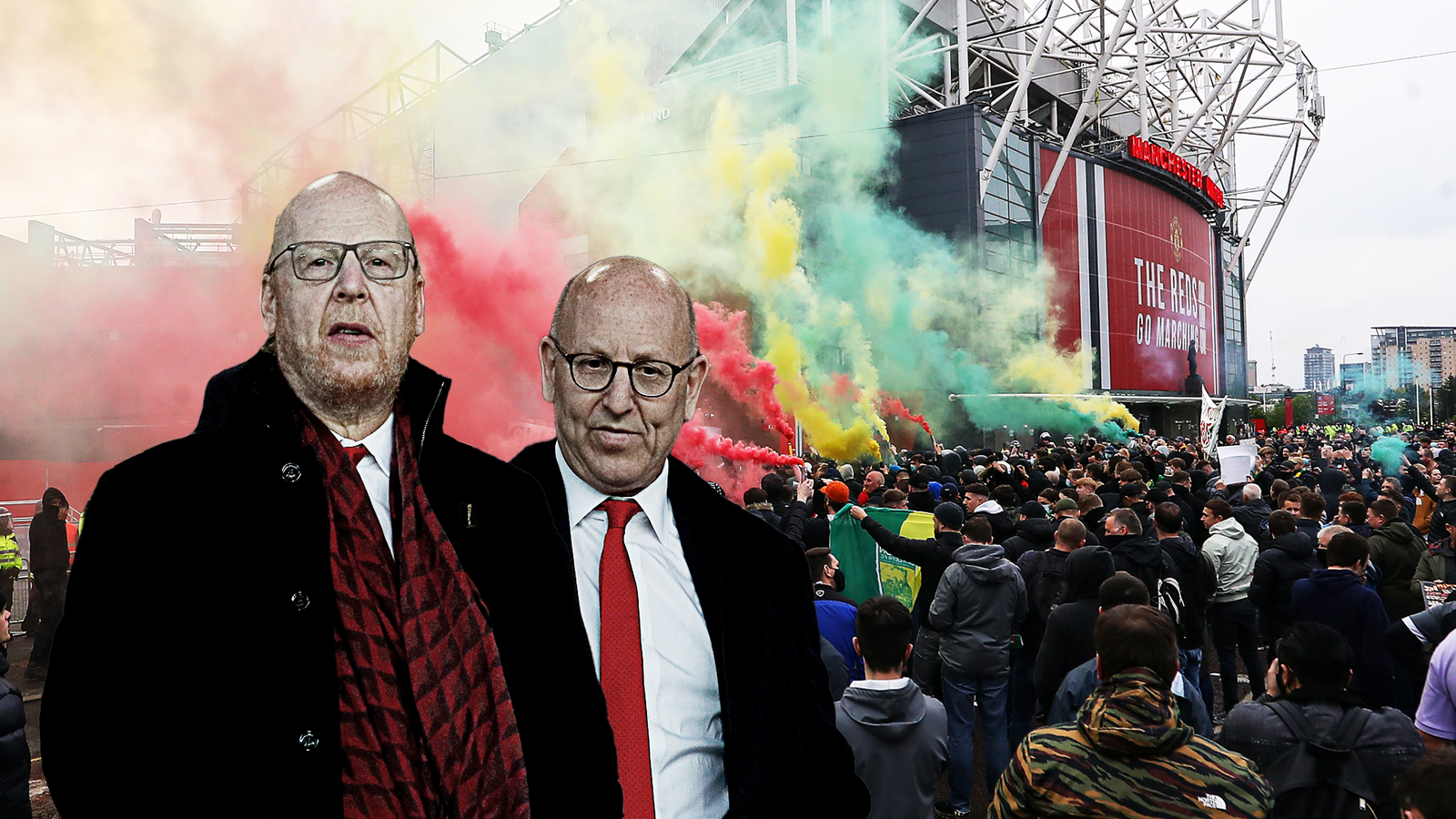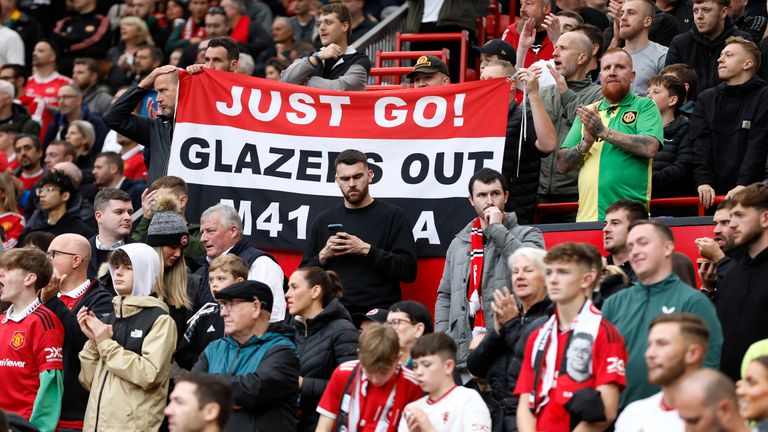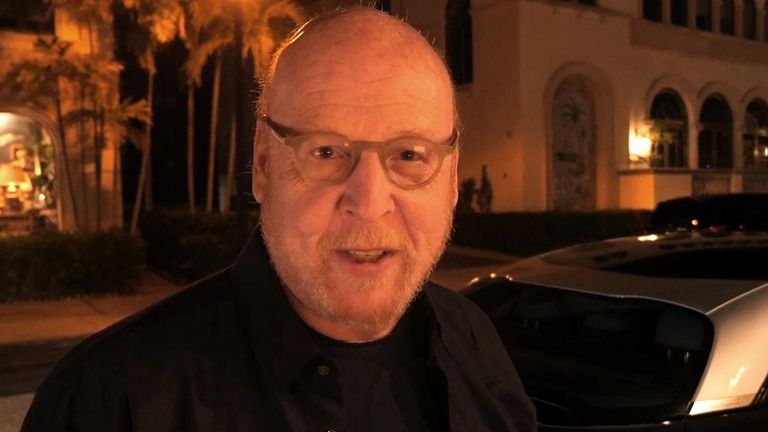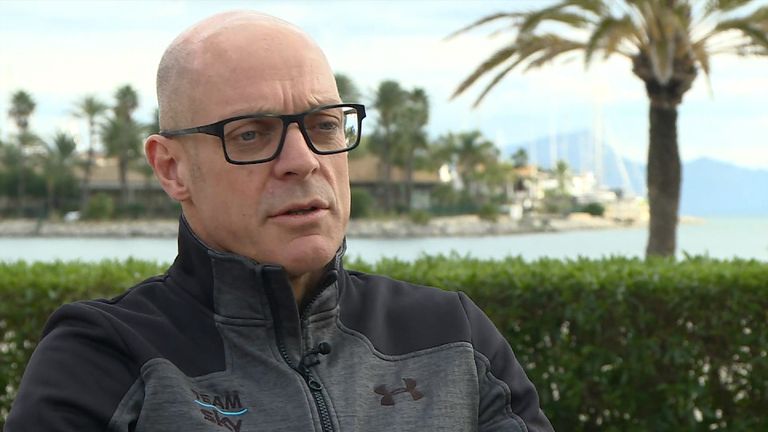The calls grew louder from Manchester United fans: “Full sale now.”
It was more than an aspiration.
The Glazers fed the belief their ownership could be ending when announcing in November last year that “strategic alternatives” were being explored.
Instead, control is only being diminished.
Just 25% of the New York Stock Exchange-listed club is being sold to INEOS founder Sir Jim Ratcliffe, the petrochemicals entrepreneur.
Just another reminder of how little the say of supporters – or at least the most vocal ones – counts at Old Trafford.
Human rights activists – and those against state involvement in clubs – would argue for the better.
Not even a bid of around £5bn for a full buyout from Sheikh Jassim bin Hamad al Thani – with funding linked to the Qatari state – could tempt the Glazers to sell up.
The American family valued their footballing asset – bought for £790m with a leveraged takeover in 2005 – at £6bn and counting.
The Sheikh Jassim offer seemed a handsome return on the initial investment, especially when servicing the debt the Glazers loaded on to the club has cost United more than £1bn.
It is cash that has gone to banks rather than building work so desperately needed at Old Trafford and the Carrington training complex.
The women’s team – disbanded in 2005 and only re-formed in 2018 – lacks a dedicated stadium or regular access to Old Trafford.
Ageing infrastructure symbolises the decay of the club.
The hope among fans will be that Sir Jim’s promised investment starts the regeneration of facilities that have fallen behind rivals.
The Glazers would see growing the commercial operations at United as a great success.
Revenue at the club has trebled during their 18-year ownership.
But that funded transfer fees and salaries in the struggle to keep up with rivals.
And how they spent – so often wastefully on the wrong players – reflects the shortcomings of the Glazers to identify the smartest sporting minds in the game to run football operations.
A new chief executive is being sought with the departure of Richard Arnold.
Sir Jim’s arrival offers the prospect of fresh ideas, sporting expertise and improved public engagement.
He can tap into the mind of Sir Dave Brailsford, the mastermind behind Team GB’s golden Olympic cycling dominance who serves as INEOS director of sport with roles across cycling, football, sailing and rugby.
But Sir Dave’s legacy has been tainted by investigations into the cycling successes with Team Sky, the forerunner to INEOS Grenadiers when owned by the parent company of Sky News.
Sir Dave previously acknowledged “mistakes were made” by Team Sky in relation to anti-doping and testing practices but denied wrongdoing.
And there are questions about how supremacy has been achieved at Manchester City, the football club that now sets the benchmark for glory.
Contrasting the fortunes of City and United are muddied until a Premier League case into vast alleged financial wrongdoing concludes.
With Abu Dhabi wealth, Manchester City now dominate not just locally in men’s football but across England – and Europe.
It is why the prospect of Qatari investment proved so enticing to some United fans, although not those with the anti-sportswashing banners at matches.
Protests have replaced parades.
In the decade since United last won the Premier League as Sir Alex Ferguson retired, City have won the title six times.
And their maiden Champions League success last season was part of a Treble that emulated United’s greatest achievement in 1999 – four years before the Glazers bought their first shares in the club.
They steadily built up control before gaining complete ownership amid fan protests.
The hope for many supporters will be that the Glazers selling off 25% to Sir Jim is the start of their route out of Old Trafford.
And that the strategic review does indeed produce a better strategy.
But rejecting a complete sale could only deepen the discord in the stands at Old Trafford with the Glazers still owning the most shares.



